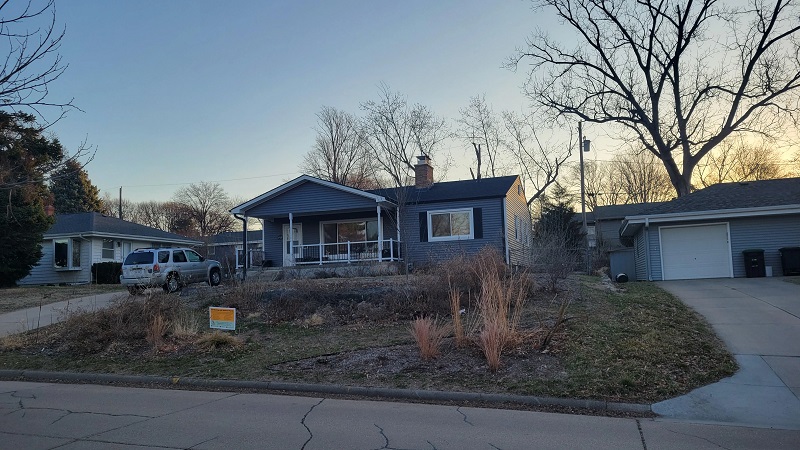After transforming their front yard into a beautiful oasis of native plants, a homeowner was excited to share progress photos with Reddit's r/NativePlantGardening forum.
The images — captured between June 2023 and June 2024 — reveal how the lawn changed with each passing season, highlighting the thriving blooms during the warmer months.


What makes this particular native plant lawn unique, however, are the geometric patterns the homeowner designed across their lawn.
Instead of covering their yard in mulch, the homeowner outlined multiple sections of lawn in the shape of triangles. They then planted groups of native plants in each triangle, growing grass between the individual gardens. This created a natural path for the homeowner to easily walk through and tend to the native plant gardens.
Redditors were impressed with the unique design and eager to learn more about the lawn transformation process.
"I love the geometric lines," one user wrote. "This is beautiful."
"Looks great, looks intentional, and nice walking paths to enjoy the plants without having 100% mulch," another Redditor commented.
Growing native plants can save you time and money on lawn maintenance. Compared to grass yards, native plant lawns conserve water and require less fertilizer, according to the Department of Agriculture.
After switching to a native plant lawn, you can save $275 on water, $50 on fertilizers, and $50 on pesticides and weed control. Even just replacing some parts of your lawn with native plants can significantly reduce the total cost of your annual lawn maintenance.
Since native plants have successfully adapted to their regions, they can not only withstand the harsh weather conditions of the area, but they also help improve the quality of the soil. By growing native plants in your yard, you also support the entire ecosystem, as native plants attract key pollinators, such as butterflies and bees.
Redditors continued to discuss the lawn's natural beauty.
"I love those triangles," one user wrote.
"I'm surprised this hasn't been upvoted more," another responded. "Well done!"
Join our free newsletter for easy tips to save more, waste less, and help yourself while helping the planet.









